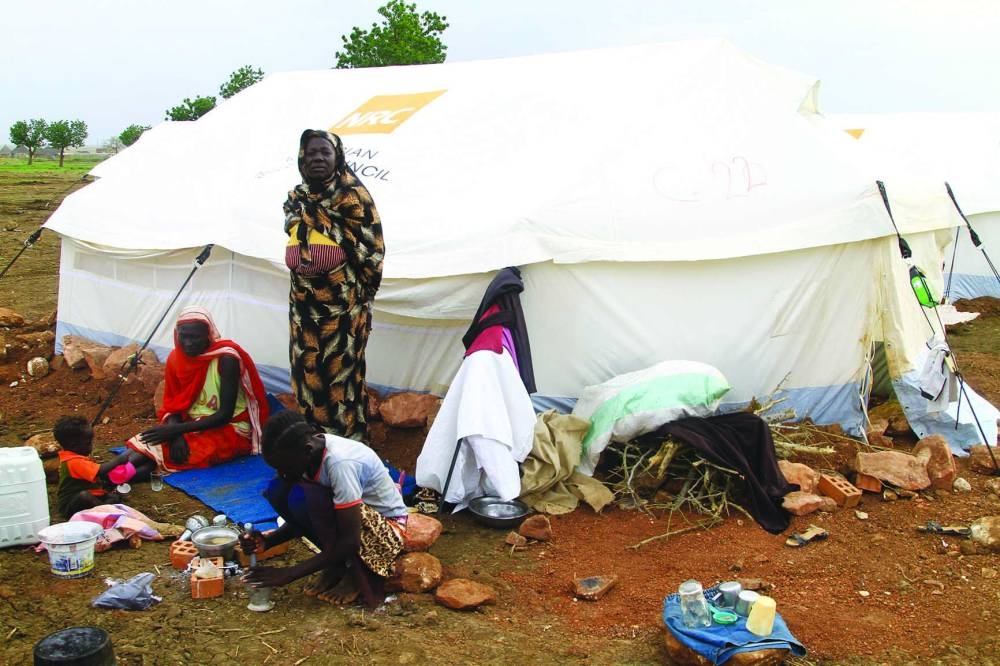
Internally displaced women and children sit outside their tent, set up at a camp for internally displaced Sudanese from Sennar state, in the Al-Huri district of Gedaref city in the east of war-torn Sudan.
More than 10mn Sudanese, or 20% of the population, have been driven from their homes since the war there began, the International Organisation for Migration (IOM) said yesterday, as the world's largest displacement crisis continues to worsen.
The number is the latest dire figure out of the east African country, devastated by a conflict that began in April 2023. The war has left half the population of about 50mn facing a hunger crisis and in need of humanitarian aid, the most of any country.
More than 2.2mn people have fled to other countries since the war began, while almost 7.8 mn sought refuge inside the country, the IOM said in a bimonthly report. An additional 2.8mn people were already displaced by previous conflicts in the country.
Fighting between the army and paramilitary Rapid Support Forces that broke out in the capital Khartoum last year quickly expanded across Darfur to the west, with the RSF taking control of most centres. UN experts say hunger has replaced violence as the largest driver of migration from Darfur, where they face difficulty delivering aid.
"All refugees I met said the reason why they fled Sudan was hunger," said World Health Organisation country director Dr Shible Sahbani to reporters after visiting refugees from Darfur, the source of half of the displaced population, in Chad.
"A woman who just reached Adre reported that all food they used to produce locally in Darfur was taken by the fighters," he added.
As the RSF expands its reach in the south east of the country in recent weeks, more than 150,000 people were displaced from Sennar state, the IOM said, many for the second or third time after RSF raids on markets and homes in the state's small towns and villages.
The RSF denies harming civilians and attributes the activity to rogue actors.
Many displaced are now in Gedaref state, which hosts 668,000 people who face heavy rains with limited shelter, and where RSF units have staged incursions.
Human Rights Watch last week warned of the danger of RSF expansion into the Gedaref for 40,000 Ethiopian refugees, largely Tigrayans, who the RSF accuse of fighting alongside the army.
